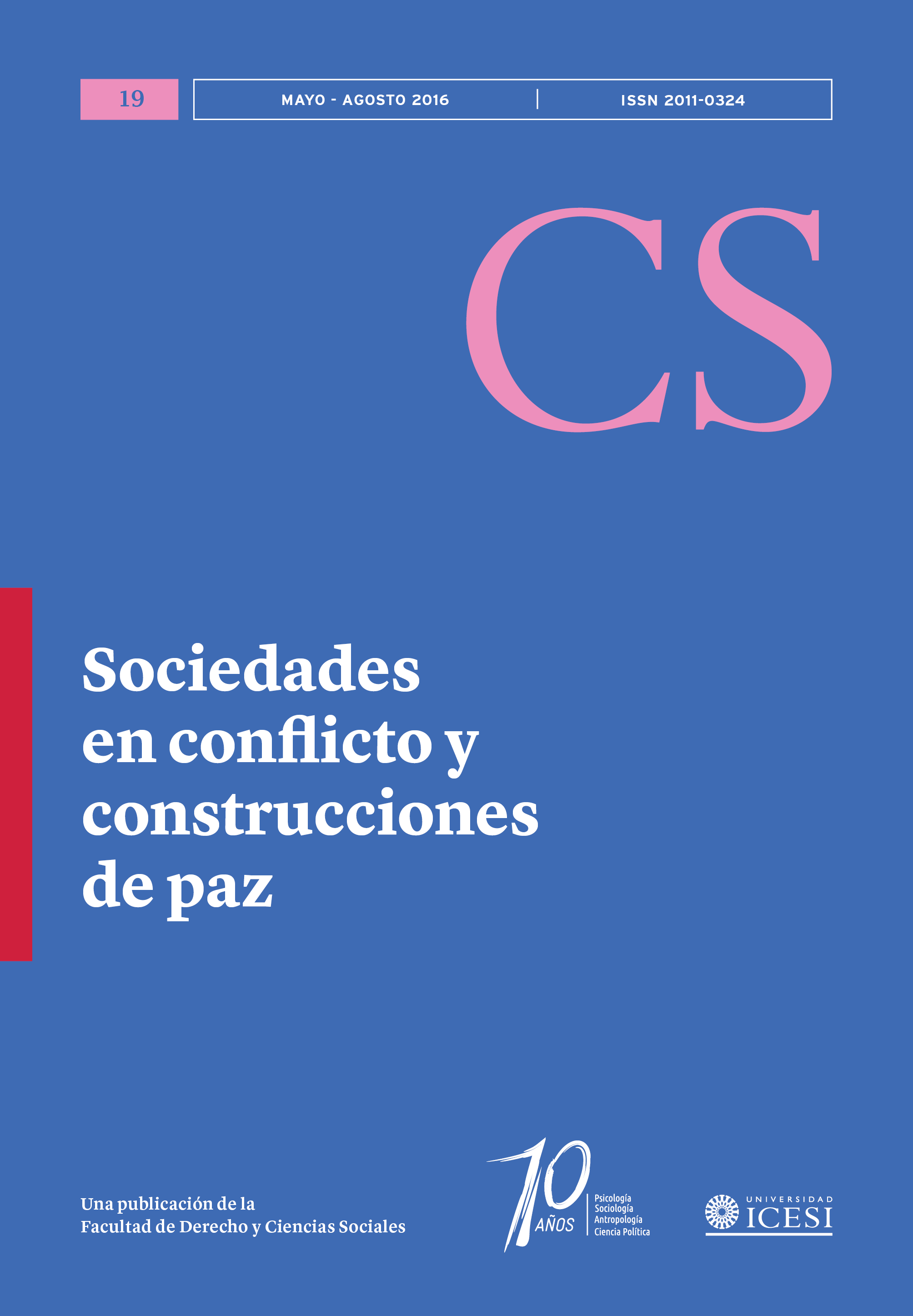Hay que evitar totalizar la violencia para poder comprender la paz viva. Entrevista con Juan Gutiérrez
DOI:
https://doi.org/10.18046/recs.i19.2173Palabras clave:
Entrevista, Paz viva, Juan Gutiérrez, México, Hebras de Paz VivaResumen
Juan Gutiérrez fue invitado a compartir la experiencia del proyecto “Hebras de Paz” en México por la Universidad Autónoma de Puebla y el Tecnológico de Monterrey. Este proyecto en concreto, y la reflexión de largo aliento del entrevistado sobre un concepto fuerte de paz, son especialmente pertinentes e inspiradores en el contexto actual de crisis de los derechos humanos relacionada con la llamada “guerra contra el narcotráfico” en México. ¿Por qué? Desde su perspectiva, encarnada en el proyecto “Hebras de Paz”, esta da visibilidad y pone en valor gestos de resistencia y de vida que deconstruyen la lógica de bandos de las guerras y la figura del enemigo. Se trata de “no totalizar la violencia”, es decir, no verla como completa, omnipotente absoluta y para ello poner el foco en estos gestos de paz viva que atraviesan los bandos y ponen en valor la humanidad transversal que siempre subyace a las situaciones de conflicto abierto. Juan Gutiérrez y los entrevistadores mantienen un diálogo vivo sobre estas cuestiones desde hace ya años y, en el contexto del viaje, pensaron que podía ser muy valioso compartir estas reflexiones, vivencias y relatos para pensar de otra manera la violencia en México.Descargas
Publicado
Número
Sección
Licencia
Derechos de autor 2016 Amador Fernández-Savater, Amarela Varela Huerta

Esta obra está bajo una licencia internacional Creative Commons Atribución-NoComercial 4.0.
© Derechos reservados de autor
El material de esta publicación puede ser reproducido sin autorización, siempre y cuando se cite el título, el autor y la fuente institucional.
El contenido publicado en Revista CS se distribuye bajo la licencia Creative Commons BY-NC 4.0 Atribución/Reconocimiento-NoComercial 4.0 Internacional.
Usted es libre de:
Compartir — copiar y redistribuir el material en cualquier medio o formato.
Adaptar — remezclar, transformar y construir a partir del material.
Bajo los siguientes términos:
Atribución — Usted debe dar crédito de manera adecuada, brindar un enlace a la licencia, e indicar si se han realizado cambios. Puede hacerlo en cualquier forma razonable, pero no de forma tal que sugiera que usted o su uso tienen el apoyo de la licenciante.
NoComercial — Usted no puede hacer uso del material con propósitos comerciales.












